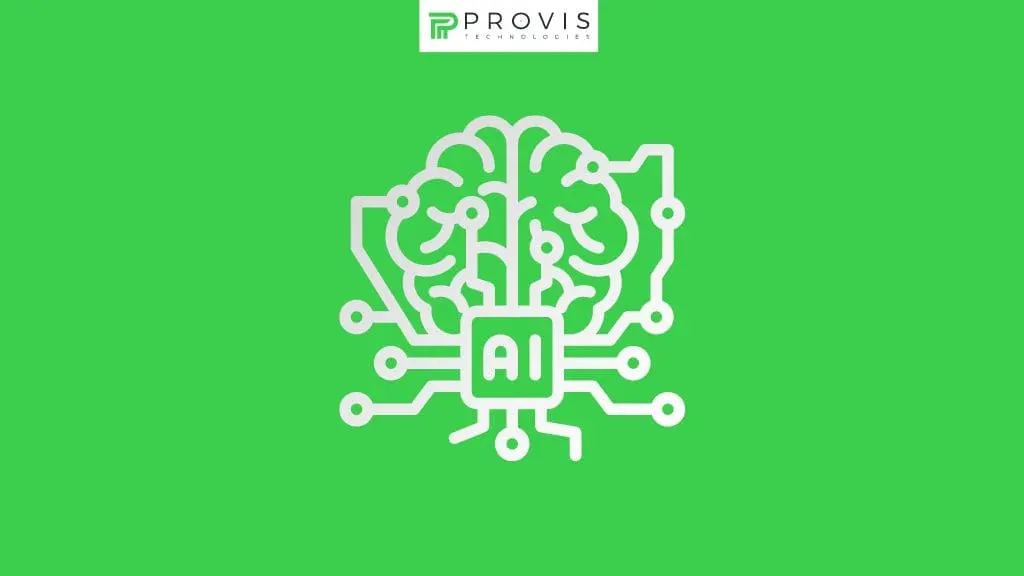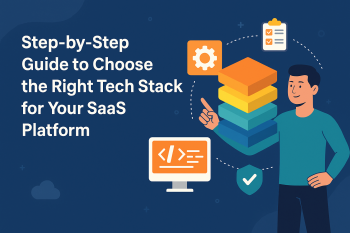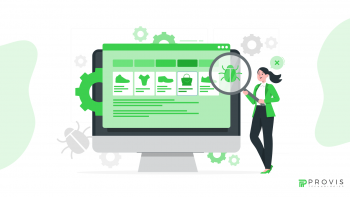Introduction
In recent years, AI-powered predictive analysis has emerged as a game-changer for e-commerce businesses. By using advanced algorithms and machine learning models, predictive analytics can forecast future trends, customer behaviors, and market demands, which helps businesses make data-driven decisions.
For e-commerce companies, predictive analysis has become an invaluable tool in creating personalized shopping experiences, optimizing inventory management, and enhancing marketing strategies. In this article, we will delve into how AI-powered predictive analysis is shaping e-commerce development and why it is crucial for businesses looking to stay ahead of the competition.
1. What is AI-Powered Predictive Analysis?
Before we dive into its impact on e-commerce, let’s first understand what AI-powered predictive analysis is.
Defining Predictive Analysis
Predictive analysis involves using historical data, statistical algorithms, and machine learning techniques to predict future outcomes. In an e-commerce setting, this could include predicting customer preferences, forecasting sales, or anticipating demand for specific products.
How AI Enhances Predictive Analysis
AI takes predictive analysis to the next level by using machine learning models to learn from vast amounts of data. These models constantly improve and refine their predictions as more data is gathered. With AI, e-commerce businesses can gain more accurate forecasts, uncover patterns in consumer behavior, and automate decision-making processes.
2. Enhancing Personalization for Customers
Personalization is one of the key areas where AI-powered predictive analysis is transforming e-commerce.
Why Personalization Matters
Consumers today expect a tailored shopping experience. Whether it’s product recommendations or personalized discounts, they want an experience that caters to their individual needs. Predictive analysis, driven by AI, makes this level of personalization possible by analyzing past purchase behavior, browsing history, and demographic data.
How AI Powers Personalization
• Product Recommendations: AI uses predictive analysis to suggest products based on a customer’s browsing history and preferences, increasing the likelihood of conversions.
• Personalized Discounts: AI can predict when a customer is likely to make a purchase and offer them a personalized discount or special deal, increasing sales and customer satisfaction.
• Targeted Marketing: Predictive analysis can help create more effective marketing campaigns by segmenting customers based on their predicted behavior and sending them personalized messages.
3. Optimizing Inventory Management
Managing inventory effectively is one of the most challenging tasks in e-commerce. AI-powered predictive analysis can help streamline inventory management by providing businesses with accurate insights into product demand.
Why Inventory Management is Important
Overstocking or understocking products can have a significant impact on an e-commerce business. Overstocking ties up capital and increases storage costs, while understocking leads to lost sales and a poor customer experience.
How AI Improves Inventory Management
• Demand Forecasting: Predictive analysis helps businesses forecast demand for different products, allowing them to plan inventory levels accordingly.
• Automatic Restocking: AI can also predict when stock levels are likely to run low, automating the restocking process and ensuring products are always available.
• Optimized Supply Chain: AI-powered predictive analysis can predict potential supply chain disruptions, helping businesses take proactive measures and minimize delays.
4. Enhancing Customer Retention and Loyalty
Customer retention is often more valuable than acquiring new customers, and AI-powered predictive analysis plays a major role in this. By analyzing customer behavior, businesses can predict which customers are at risk of churn and take preventive action.
Why Customer Retention is Important
It costs five times more to acquire a new customer than to retain an existing one. Predictive analysis allows businesses to focus on retaining high-value customers, increasing their lifetime value (CLV).
How AI Improves Customer Retention
• Churn Prediction: AI can predict which customers are most likely to churn based on their interactions and engagement levels, allowing businesses to intervene with targeted offers or support.
• Loyalty Programs: AI-powered analysis can identify customer preferences and behaviors, allowing businesses to design more personalized loyalty programs that resonate with their target audience.
• Proactive Engagement: By predicting customer needs, businesses can proactively engage with customers through personalized emails, reminders, or product updates.
5. Better Marketing Strategies with Predictive Analytics
Marketing plays a central role in e-commerce success, and AI-powered predictive analysis is helping marketers fine-tune their strategies for maximum impact.
Why Marketing Optimization is Crucial
Optimizing marketing efforts ensures that e-commerce businesses are spending their budgets wisely and targeting the right customers with the right message. Predictive analysis takes the guesswork out of marketing.
How AI Enhances Marketing Strategies
• Customer Segmentation: AI uses predictive analysis to segment customers based on purchasing behaviors, demographics, and interests, ensuring marketing campaigns are highly targeted.
• Optimal Campaign Timing: AI helps businesses determine the best times to send marketing messages, increasing engagement rates.
• Performance Forecasting: AI can predict the success of different marketing channels and campaigns, allowing businesses to allocate resources more effectively.
6. AI-Powered Chatbots for Enhanced Customer Support
AI chatbots are another feature that’s becoming increasingly common in e-commerce. By using predictive analysis, AI-powered chatbots can offer customers personalized support and information.
Why Chatbots Are Important
Customer service is an essential part of the e-commerce experience. AI-powered chatbots can handle routine inquiries, freeing up human agents for more complex issues.
How AI Improves Customer Support
• Instant Assistance: Predictive analysis enables chatbots to understand customer intent and provide immediate, relevant responses.
• 24/7 Support: Chatbots can offer round-the-clock customer service, ensuring that customers get the support they need anytime.
• Personalized Interactions: AI allows chatbots to personalize their responses based on past interactions with customers, making the service feel more human-like.
7. The Future of AI in E-commerce Development
The potential for AI-powered predictive analysis in e-commerce is still expanding. In the future, we can expect even more advanced applications of AI in e-commerce development.
AI and Augmented Reality (AR)
One exciting development is the integration of AI with augmented reality. Predictive analysis will power AR experiences that help customers visualize products before making a purchase.
AI and Voice Search
Voice search is growing in popularity, and predictive analysis will play a crucial role in making voice commerce more efficient by predicting user intent and providing accurate search results.
AI and Automation
As AI continues to evolve, we can expect more aspects of the e-commerce process to become automated, from inventory management to customer engagement, making e-commerce businesses more efficient and profitable.
Conclusion
AI-powered predictive analysis is a powerful tool that is transforming e-commerce development. It helps businesses make data-driven decisions, personalize the customer experience, optimize inventory, and improve marketing strategies. As AI technology continues to evolve, its role in e-commerce will only grow, offering businesses more opportunities to innovate, streamline their operations, and increase their bottom line.
By embracing AI-powered predictive analysis, e-commerce companies can stay ahead of the curve and create a competitive edge in an ever-changing digital landscape.
FAQs About AI-Powered Predictive Analysis in E-commerce
1. What is the difference between traditional predictive analysis and AI-powered predictive analysis?
Traditional predictive analysis relies on static models, while AI-powered predictive analysis uses machine learning to constantly refine and improve predictions over time.
2. How can AI-powered predictive analysis help improve sales?
By predicting customer behavior, demand, and trends, AI helps businesses optimize their sales strategies, ensuring they target the right products to the right customers at the right time.
3. Can AI predict inventory demand?
Yes, AI can analyze historical data and trends to forecast future product demand, helping businesses avoid overstocking or understocking products.
4. How does AI improve customer experience in e-commerce?
AI uses predictive analysis to offer personalized product recommendations, targeted discounts, and timely customer support, improving the overall shopping experience.
5. Is AI-powered predictive analysis expensive for small e-commerce businesses?
While AI-powered tools may have an upfront cost, the long-term benefits such as increased sales, better customer retention, and optimized operations make it a valuable investment for businesses of all sizes.
Written By
Author's Picks
- E-commerce Development Service
- 27/07/2023
- Ecommerce Automation in 2025: Benefits, Strategies & Examples
- 24/04/2025
- Why is 2024 a Great Year to Start Your E-commerce? E-commerce Trends 2024 | E-commerce in 2024
- 27/02/2024
Categories
- AI for Startups
- AI in Web Development
- AI Integration
- AI Platforms
- AI Prompt
- AI Tools
- AI Trading Software
- Android App
- Android vs iOS Development
- Angular
- API
- API Development
- App
- app development
- App Idea
- App User Feedback
- Application
- Artificial Intelligence
- Audit Services
- Automotive Industry
- Awards and Recognition
- Business Consulting
- Business Website
- Chatbots
- CRM
- CRM for Financial Advisors
- Custom CRM
- Custom SaaS
- Custom Website
- Customer Service
- dashboard design
- Developing a Mobile App
- Digital Business
- E-commerce
- EMR Integration
- Finance
- Financial Advisors
- Financial Advisors
- GIT
- Health Insurance
- iOS App
- iOS App Development
- IoT Mobile App Development
- IoT Platforms
- IT Audit Services
- IT Consulting
- IT Strategies
- Java Development
- Laravel
- Lean Canvas
- Learning Management System
- Logistics Apps
- Mobile App Development
- MVP
- Native App
- News Aggregator Site
- OTT
- Outsourcing IT
- Payment Gateway
- predictive analysis
- Product Launch Strategy
- Progressive Web App (PWA)
- Prototype
- Recommender Systems
- Ruby
- SaaS
- SaaS Application
- SaaS Business
- SaaS Company
- SaaS Development
- SaaS Product
- SaaS Project
- Sales Funnel
- SEO
- Shopping Cart
- Software Development
- SSL and TLS
- Startup Checklist
- Technology
- Tetradic Color Scheme
- UI/UX Design Company
- Unit Testing
- User Flow
- User Testing
- Web Development
- Web Performance Optimization
- website Maintenance Services
- Website Migration Service
- Website Speed Optimization
- WooCommerce
- WordPress





